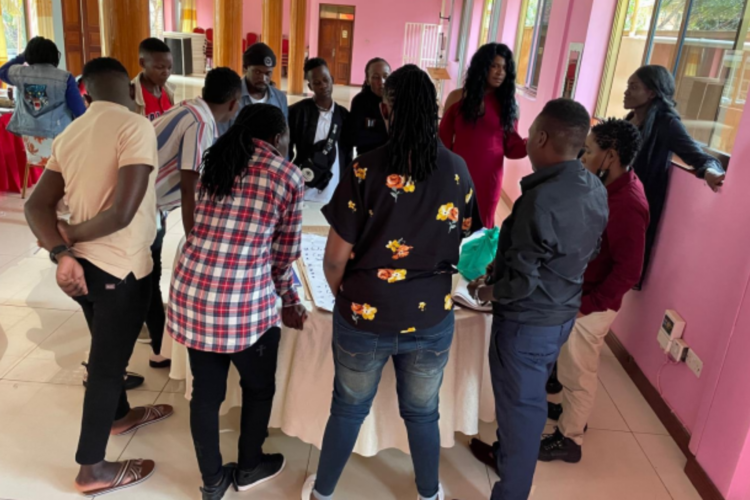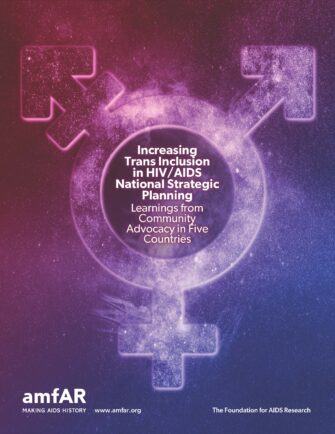Trans people are among the groups most at risk for HIV, but they are frequently excluded from policy and planning documents like National Strategic Plans for HIV/AIDS (NSPs). This project aimed to increase trans inclusion in NSPs by building the capacity of five trans-led community organizations to engage in NSP-focused advocacy and shape trans-specific programming. amfAR and GATE worked with partner organizations in Ukraine (Cohort), Uganda (FEM Alliance Uganda), Thailand (Sisters Foundation), Kenya (Jinsiangu), and one country on the African continent unnamed for safety reasons.
As the timeframe of the project did not allow for changes to trans inclusion in the NSPs to be measured, researchers instead measured factors that would facilitate inclusion during the next NSP development cycle: advocate “readiness” to engage in NSP advocacy and the extent to which advocates were able to build relationships with key government and international stakeholder allies.
While key lessons specific to each country emerged and are detailed in the report, cross-country lessons were also illuminated:
- data collection by and for trans communities is urgently needed
- NSPs must address structural barriers to HIV care for trans populations
- advocacy for trans inclusion in NSPs must be flexible, sustained, and tailored to the context






